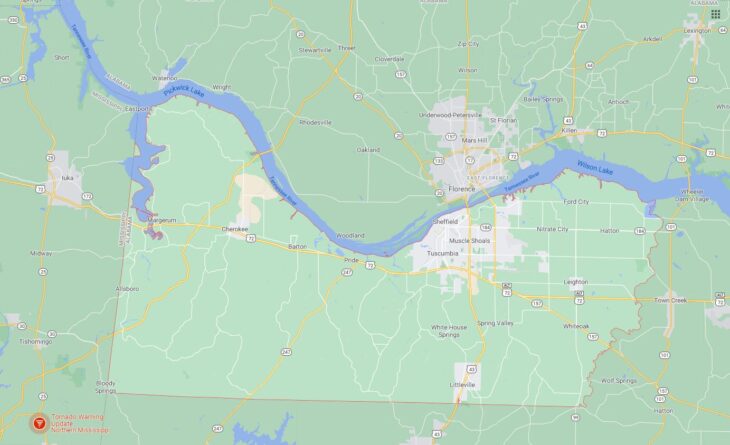Cities and Towns in Colbert County, Alabama
Founded in 1867, Colbert County is the 24th biggest county by population (out of 67) in the state of Alabama. Historically, Colbert County was formed from Franklin County. The city of Tuscumbia is the County seat. With population density of 91.8 residents per square miles, Colbert County has a population of 54,428 and area of 592.62 square miles.
List of all cities and towns in Colbert County, Al
| City/Town | Postal Code | Area Code |
| Cherokee, AL | 35616 | 256 |
| Leighton, AL | 35646 | 256 |
| Muscle Shoals, AL | 35661, 35662 | 256 |
| Sheffield, AL | 35660 | 256 |
| Tuscumbia, AL | 35674 | 256 |














































